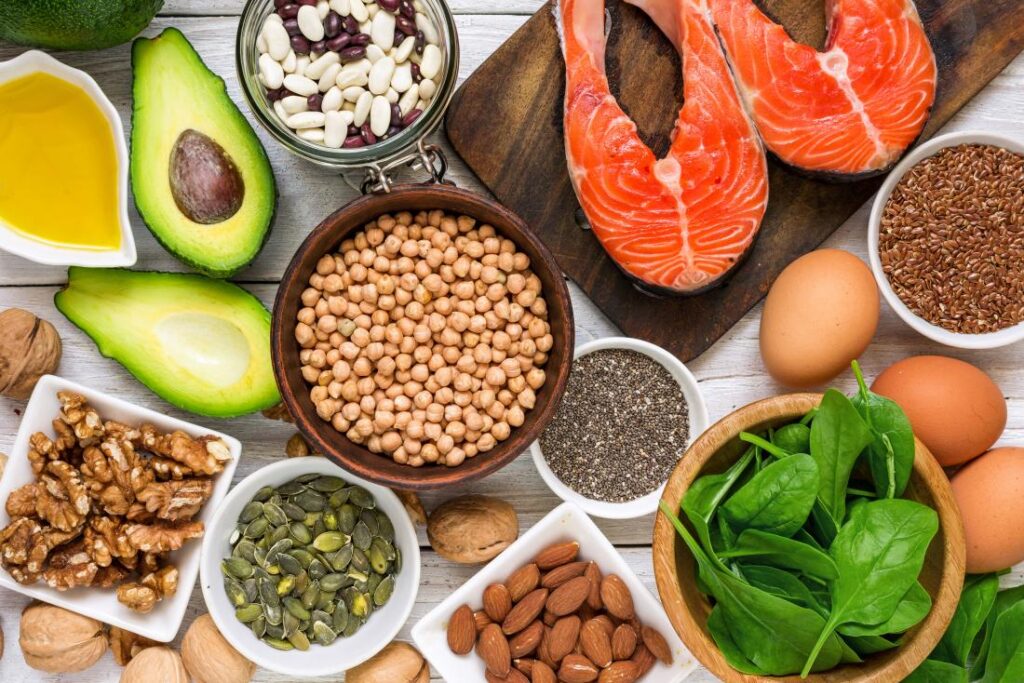


Salmon is one of the most nutritious foods you can eat, primarily due to its rich omega-3 content. Mackerel is also rich in coenzyme Q10, which may help reduce your risk of certain cancers. Mackerel are small fatty fish that pack more omega-3 fatty acids than salmon per serving. Salmon is very popular for its omega-3 fatty acid content, but they come in second after mackerel. Here are some of the richest sources of omega-3s: 1) Mackerel If you’re not a big fan of fish, you can also get enough omega-3 fats by choosing a supplement that contains omega-3 from plant-based sources. Some of the best sources of omega-3 fatty acids come from fish sources, but they can also be found in plant-based foods. Omega-3 fatty acids are associated with an antidepressant effect, which means they may help ease depression symptoms. Untreated high blood pressure can increase your risk of heart attack, stroke, kidney disease, aneurysms, dementia, and other health conditions. Omega-3 fatty acids can help reduce blood pressure levels, especially in people with high blood pressure (6). Preterm births can result in complications like developmental issues and problems with organ development in the preterm baby. Might help reduce preterm birthĭHA supplementation during pregnancy is associated with a lower risk of preterm birth, which is when a baby is born before 37 weeks gestation (5). DHA is especially high in the cells of your retina, which is the part of your eye that converts light into images, which allows you to see. May help protect healthy visionĮPA and DHA are important omega-3s for vision health. Including enough DHA in your diet can improve learning ability, whereas a lack of DHA is associated with learning deficits (4). Promote brain healthĭHA is particularly important for brain health and development. In addition, omega-3 fatty acids have been shown to help reduce triglycerides, a type of fat in your bloodstream also associated with abnormal cholesterol levels and non-alcoholic fatty liver disease. While they lower LDL cholesterol, omega-3s can increase HDL cholesterol, which is “good” cholesterol that can help reduce your risk of heart disease (3). Omega-3 fatty acids may help lower LDL cholesterol, which is known as “bad” cholesterol because it can increase plaque buildup in your arteries. Your cholesterol levels and blood pressure play a large role in the many factors that determine your heart disease risk. Heart disease is the leading cause of death worldwide. Many studies note the anti-inflammatory properties of omega-3s (2). While inflammation can be helpful in some cases, chronic inflammation can lead to health problems like heart disease, diabetes, and certain cancers. Omega-3 fatty acids are well-known for their ability to help reduce inflammation. Omega-3 fatty acids help make hormones responsible for blood clotting, the contraction of blood vessels, and hormones that regulate inflammation. Omega-3 fatty acids play many roles in your body and have several health benefits. You must obtain omega-3 fats from foods or supplements in order to get enough of them. Omega-3 fatty acids are considered essential, which means your body can’t make them on its own. Saturated fats primarily come from animal products like red meat and full-fat dairy (1). Unsaturated fats like omega-3s are associated with better blood cholesterol levels and heart health than saturated fats. Polyunsaturated fats like omega-3s are considered heart-healthy fats, along with monounsaturated fat. There are three types of omega-3 fats: alpha-linolenic acid (ALA), eicosapentaenoic acid (EPA), and docosahexaenoic acid (DHA).ĮPA and DHA primarily come from fish, while ALA is found in nuts, seeds, and the meat of some grass-fed animals. Omega-3 fatty acids are a type of polyunsaturated fat you get from certain foods. If you’re wondering which types of fats are the best to eat for your health, you’re in the right place. While some aspects of nutrition advice have changed over recent years, the recommendation to eat omega-3 fatty acids has not. Which ones are “bad,” and which ones are better choices? One of the more confusing aspects of nutrition is fats. Nutrition is a complex and ever-changing science. What are the health benefits of omega 3?.


 0 kommentar(er)
0 kommentar(er)
